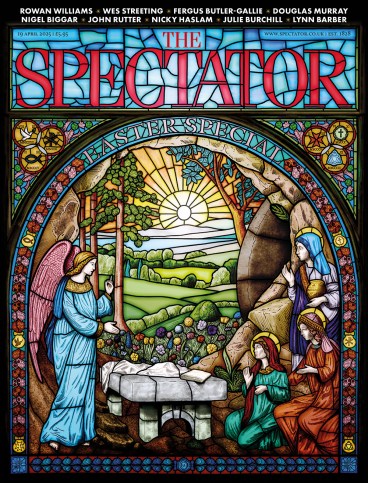
Olivia Potts has narrated this article for you to listen to.
Roast lamb is as expected on the Easter table as turkey is at Christmas. But as a nation, we are falling out of love with lamb. Meat consumption in Britain is at its lowest level since records began, and according to the Agriculture and Horticulture Development Board (AHDB), lamb has been in particular decline for the past 20 years.
We may feel we are supporting the sheep-farming industry, but the truth is a little more complicated
There are a number of reasons for this: some people are trying to eat less meat for environmental or ethical reasons, while others don’t enjoy the richer taste of lamb compared with other meats. Perhaps most importantly, after a long period of rising in price more drastically than other meats, the cost of lamb reached record highs last year. It is significantly cheaper to feed a family with a whole chicken or a joint of pork than with the equivalent cut of lamb.
Charlotte Mitchell, who runs Charlotte’s Butchery in Newcastle upon Tyne, explains that lamb makes people anxious. Customers are scared of cooking it, she tells me, and many complain about the way it smells while cooking. And she believes that, as its price has risen, supermarkets have stopped using it as a loss leader, so it appears even more expensive than other meats. ‘The truth is we have been underpaying for meat for too long,’ she says. ‘Before Brexit, farmers received money for having lambs on their fields, keeping the countryside clean and tidy.’ Post-Brexit, however, ‘subsidies have evaporated’, which means that sheep-rearing is a much more intentional (and expensive) choice for farmers.
The practice of eating lamb at Easter is partly inherited from the Jewish festival of Passover. When God sent the plagues to Egypt, he instructed the Israelites to sacrifice a lamb for each household and eat it that night, and to mark the doors of their homes with lamb’s blood so that the Angel of Death would ‘pass over’ them. Early Christians adopted the tradition of roasting lamb for their religious festival, commemorating the sacrifice of the ‘lamb of God’.
However, Easter lamb isn’t actually seasonal in Britain; quite the opposite. Here, our traditionally reared lamb isn’t ready until autumn. During spring, lambs gambol on wobbly legs, and follow their mothers – but it takes six months to feed those lambs to the point where they are big enough for market. So while we may feel that we are supporting the sheep-farming industry by serving a roasted shoulder or leg of lamb on Easter Sunday, the truth is a little more complicated.
A ewe’s fertility is naturally activated by the shortening of the days, and a spring birth is nature’s way of ensuring the lambs get grass at its freshest, sweetest and most nutritious. Lambs are fattened up in the fields in spring and slaughtered towards the end of summer – so really, the best time to eat grass-fed British lamb is from autumn onwards.
It’s possible to rear lambs out of season, but those that have been fattened up for sale for Easter have inevitably been raised indoors, where antibiotics, expensive grain and feed concentrate are far more common. While it feels counter-intuitive, it doesn’t make sense to rear lamb in Britain to be eaten in early spring.
Much of the lamb that we eat at this time of year is actually imported from New Zealand – where lambs born in their spring (our autumn) are ready to eat at Easter. Of course, lamb that comes from the other side of the world has a significant carbon footprint. If we’re looking for either a sustainable food choice, or to support British farming traditions, Easter lamb is not the answer.
There is hope for British lamb, however, and it comes from the demand for halal meat. The AHDB reports that, although Muslims make up only 6 per cent of our country’s population, they purchase 30 per cent of the lamb sold. Some 80 per cent of halal customers consume lamb weekly, compared with only 6 per cent of the overall population. Sheep farmers are now being advised by the AHDB to focus on halal customers’ needs.
We could all be little braver about cooking lamb. We could also consider paying more for it, and eating it more regularly, but ideally in the correct season. But are we really prepared to sacrifice having lamb on the table at Easter? I suspect not.







Comments